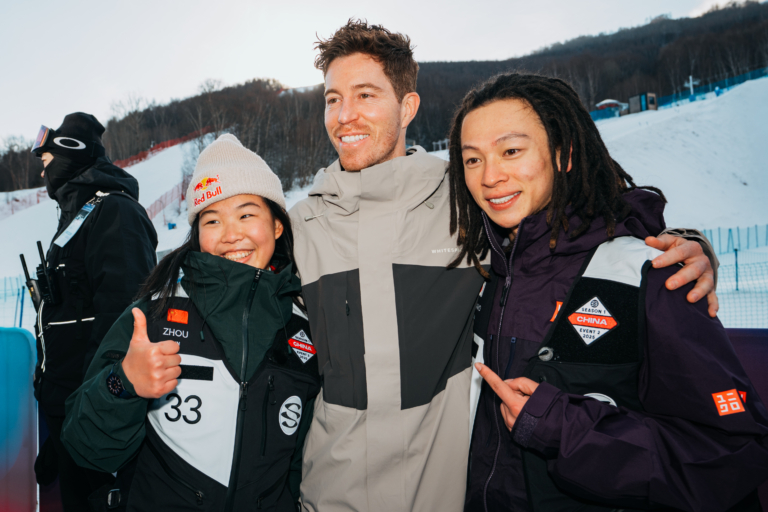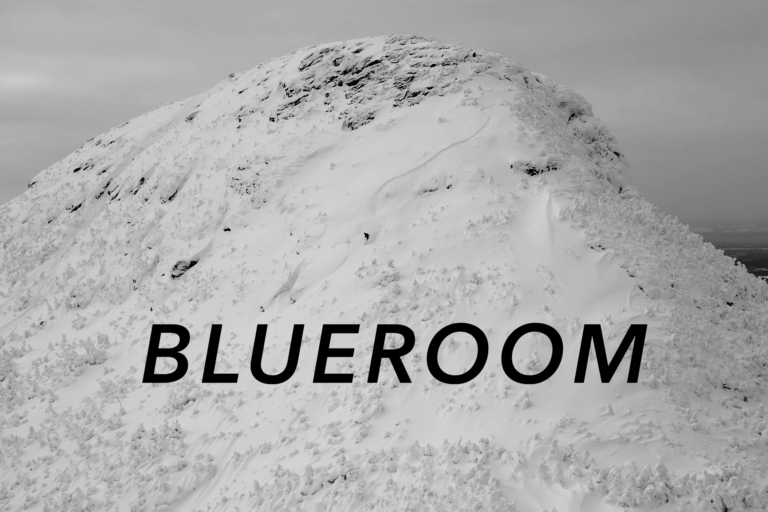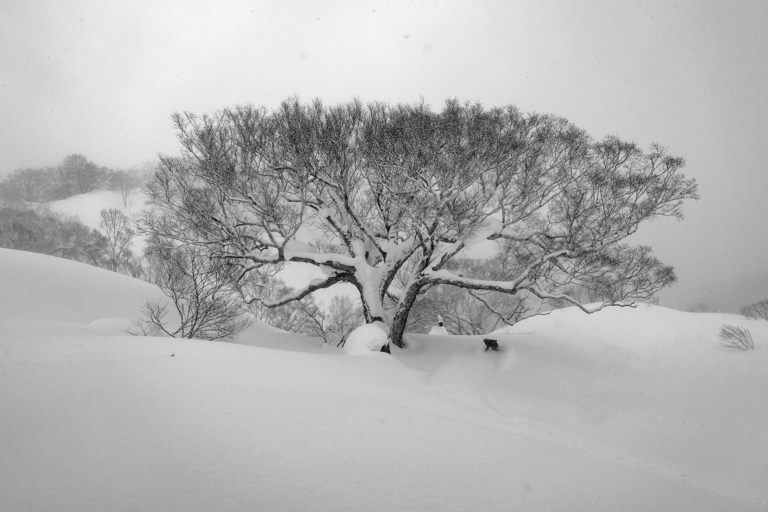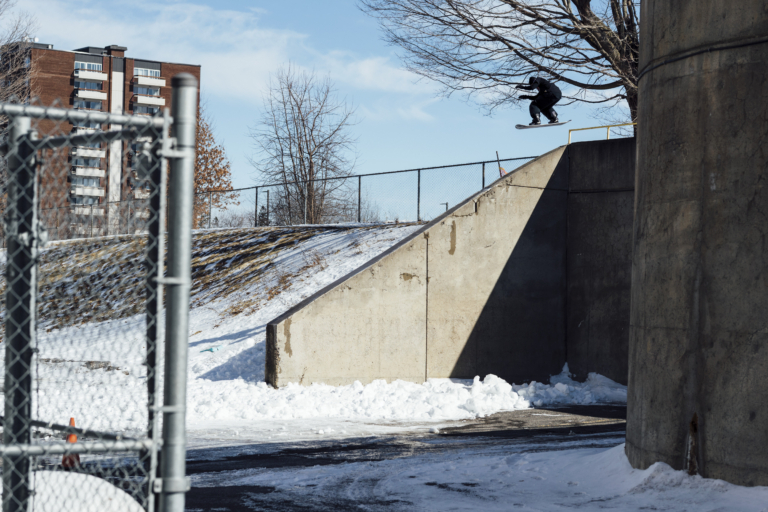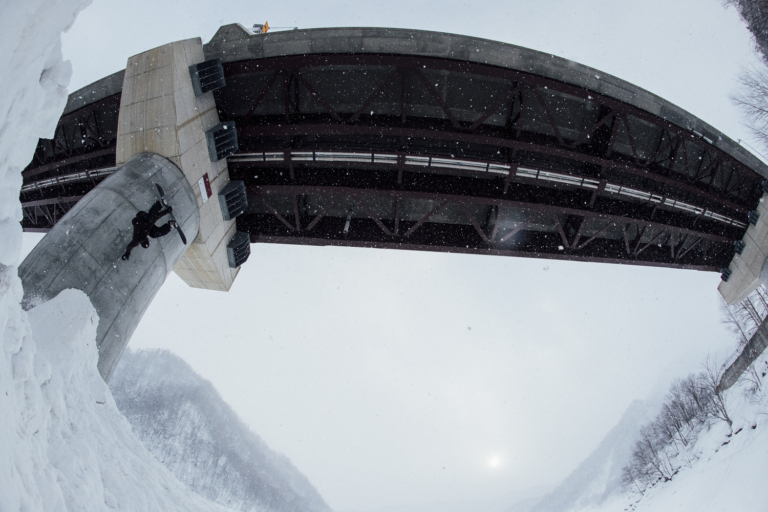In early September I sat on the floor of an old ski lodge halfway between Reno and North Lake Tahoe, leaning against the back wall next to my rolled-up sleeping mat that I used the night before to camp out inside. Outside a lift sat waiting for colder weather. Inside, antique sleds and ice skates decorated the walls. Diffuse light streamed in through big windows with shades pulled down partway to try to keep the room cool from the autumn sun. The effort was well intentioned but with almost 100 people gathered around tables in the lodge, it was already steadily warming up.
I was in Reno for the annual Protect Our Winters Leadership Summit, an event planned to be decidedly outside, but wildfires were growing in North Lake and smoke choked the sky. I had arrived the day before, hopped on a bus from the airport, and arrived at the resort near Mount Rose. I set up a tent among many others in a field next to the sleeping chairlift and joined in casual conversations about air quality as the sky turned more opaque. The first night, we had been able to camp, but by the following morning, everything had moved indoors. It was honestly a little on the nose for Mother Nature, but at some point, subtlety doesn’t always get the point across.
So there we sat with the windows closed. Jeremy Jones and his daughter Mia were just to my left. Austin Smith sat a few chairs away. Nils Mindnich, Lora Bodmer, and Dani Reyes-Acosta were over to the right. Snowboarders and artists and mountaineers and climbers and scientists and skiers and public policy officers and photographers and filmmakers sat together. Folks who decisively added “advocate” to their credentials and traded in their nanopuffs for businesswear during trips to Washington in order to protect their outdoor playgrounds. Folks who had learned through Jeremy Jones’ creation of POW that magnifying their personal interests in the mountains (and beyond) and translating this to policy would make the difference, so they were rallying by engaging in lobbying and learning about legislation. Folks who understood that while there was work to be done within the political system, saving the climate wasn’t about partisan politics—that they needed to affect largescale change to protect the outdoors and the Earth, and the way to do this led to DC.
It is within this understanding that Protect Our Winters gathers its alliance members for summits periodically throughout each year, inviting scientists, creatives, activists, and people who work on Capitol Hill (among others) to educate and drive discussion with the alliance members of POW to empower them to communicate what resonates with their individual communities. All of the alliance members have a personal stake in spending time outside, in why they love snowboarding, mountaineering, climbing, etc., and while it is easy to revel purely in the enjoyment of these activities, none of them exist in a vacuum and our actions off our boards or respective gear affect our future seasons. It’s on these grounds that Protect Our Winters hopes to engage outdoors enthusiasts and mobilize them to use their voices to enact change. POW refers to this collective of voters as the Outdoor State. And its potential is huge: Outdoor sports participants represent upwards of 57 million people globally and help to create almost $900 billion dollars in economic revenue. With both people and dollars talking, that’s a lot of potential power.
When it comes to the traditionally counter-culture world of snowboarding, there are few things that feel further away from Washington DC. But since 2007, when Jeremy Jones launched POW, he has made activism and advocacy more accessible in the alpine, breaking trail as he has done in so many other aspects of his career. It’s important to highlight that POW emphasizes always that interests in protecting the outdoors are not prohibitive per party line; reducing emissions, utilizing clean energy, and bettering the trajectory of our climate benefits everyone. Over the past few years, in particular, there has been a groundswell of climate advocacy, action, and conversation in snowboarding among riders, movie projects, magazines, and brands—just that this is becoming a topic of discussion and an effort that is acted upon within the world of action sports is positive momentum.
So, there we were at the Summit, inside the lodge, diving in more deeply into the current state of clean energy initiatives and Capitol Hill in order to leave more knowledgeable and fired up for the November elections. That morning, everyone was rapt listening as Mario Molina, the executive director of Protect Our Winters, stood in the front and broke down just why the upcoming midterm elections were so important. And Mother Nature was keeping us on task with a smoky reminder.
This was my first time attending a POW Summit and this one was particularly exciting because of two things: the upcoming midterms and the fact that the Inflation Reduction Act—the most impactful climate legislation ever—had just passed in August. The IRA is testament to what collective passion and dedication can accomplish; POW’s efforts, not only over the past fifteen years but also specifically leading up to the senate vote, played a “small but crucial role,” per the New York Times, in the bill’s passing. The important word there, of course, is “crucial.” People sitting in the ski lodge in Reno had literally helped to tip the scales in the IRA vote by lobbying for the climate. That kind of impact is no small feat and when looking back at Jeremy Jones’ impetus for founding POW and the premise that one’s love of being outside can have such a monumental impact on the world. Truly, it’s incredible what the organization has accomplished so far.
When it comes to pure enjoyment, the majority of us probably like pow days more than politics—but if we pay attention and participate, we can reap the benefits of that involvement on both local and large scales. Case in point: The Inflation Reduction Act was a massive win that is set to reduce emissions by one gigaton in 2030. No matter where you stand on the political spectrum, investing in our environment is truly good news.
Mario Molino wrote succinctly on POW’s website:
“There’s stuff in [the IRA] that everyone can get behind: tax credits if you’re conservative, research investment if you’re a futurist, social spending if you lean more liberal and strong incentives for workforce development and American manufacturing, which should appeal to all of us. It’s important to remember that this isn’t all spending and that the Congressional Budget Office, which is non-partisan, has estimated that the bill will result in a net decrease in the deficit of $102 billion over the 2022-2031 period and that it will leverage trillions of dollars of private investment. A lot of this capital will be deployed in so-called ‘red states’ because that is where much of the country’s solar and wind capacity is and through which transmission lines must run. So regardless of ideology, this is a pragmatic win-win for all of us and a monumental step forward worth celebrating.“
At the Leadership Summit, everyone came from different places and unique backgrounds, but the passion was ubiquitous, as was the interest in taking in everything that was presented, from panel discussions to dinner conversation. To hear different viewpoints from various regions in the US where different things affected perspectives and acknowledge the connecting threads was illuminating. In addition to the athletes and artists present, POW had invited a host of scientific and political experts who broke down complex topics regarding technology, emissions, politics, legislation, and ways to positively engage with others. From Maine to Utah to Alaska to California, conservative, liberal, and in between, common ground was fostered because the overarching goals were the same, and though communicate could be sometimes clouded by different language or frame of mind, the POW Summit worked to break things down for clear and common understanding.
As snowboarders, we have a particular viewpoint, watching not only snow forecasts and precip totals throughout the winter, but seeing snowlines change and glaciers recede year over year. The effects of climate change are in front of us, regardless of where we call home and what resorts we frequent. No matter what political leaning we identify with, we have a vested interest in the Earth and in the ability to spend time outdoors. Of course, none of us are perfect in our daily lives. We are all learning every day and make both great strides and mistakes. But if we just participate on a basic level through education, conversation, and of course, voting, we can help to protect the places we love to spend time in.
The 2022 midterms are November 8th! The Protect Our Winters Action Fund (@pow_action_fund) is a great resource for voter guides leading up to the election as well as information on upcoming legislation. Participation through voting is a hugely impactful way to protect the outdoors. Participation for precipitation. Follow @protectourwinters for more.

















